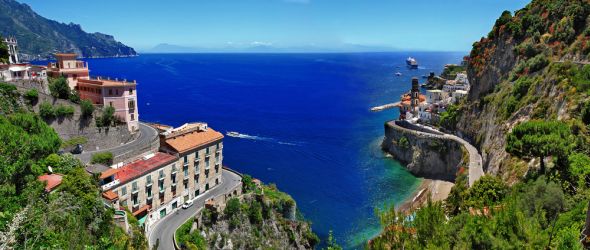Is your dream a little apartment in Cinque Terre or Amalfi Coast?
Would you like to buy an ancient cottage in Tuscany?
Are you interested in buying a penthouse overlooking Colosseo?
These are the desires of a lot of foreigners who love Italy.
Sometimes they are discouraged because they think it’ s very difficult.
Actually in Italy, buying and transferring a property is subjected to a complex and detailed regulation and a legal support is necessary.
Although in every country the objective is the same and the process may be similar, local customs may be quite different and of course language barriers may present challenges. Terminology which may appear similar in English and Italian can have very different meanings.
The following list is a brief explanation , of the most important steps to buy a house in Italy.
1) First of all, you need to understand if you are eligible to buy a property in Italy.
Eligibility means that your country and Italy signed a bilateral agreement about foreign investment in real estate. A foreign citizen who stay in Italy for short periods or have a permit to stay in another European state can purchase property in Italy only if Italians are legally allowed the same type of transaction in the person’s home country.
After you understood you are eligible, you need to obtain an Italian tax code number (called “codice fiscale”).
2) When you found a property you are interested in, it is advisable to obtain a valuation on it.
The valuation goal is the same in every country:
– to make you sure that you are not paying too much;
– to understand what are you buying and the real condition the property is in.
3)Then, you need to look over the civil documentation about the property you chose: ownership, the building permit, the property correct registration, liens and burdens, right of ways, possible historical, artistic and archeological limitations, possible charges on the property. The Notary will carry out such checks at the end of the process immediately prior to signing the public deed but it is important that these researches are also carried out prior to signing the contract and paying a deposit.
4) It’s also important understanding the property taxes you must pay to the Italian government in consequence you own a property.
Income tax is payable in Italy by all property owners on the theoretical rental income of the property during the year; foreigners not resident in Italy are subject to this tax only if the income exceeds a certain threshold.
5) After you knew all these information, you’re ready to sign the preliminary contract (called “compromesso”) in which both you and the seller oblige to sign the final contract (public deed). In this kind of agreement is described the property (its features such as size, location, number and rooms type) and the most important elements of the public deed ( sale price, date, method of payment).
With the signature of “compromesso” the buyer pays a deposit (caparra confirmatoria). If the buyer pulls out he would normally lose his deposit. If the seller pulls out, the buyer would get double the deposit back . Usually a deposit consists of 20 to 30% of the sale price.
6) The final agreement and the handover of property happens in front of a public notary.It’s called public deed. This requires you to exhibit a valid identification document, and your tax code. The notaio or notary public has the responsibility of performing due diligence and although he is chosen by the seller, he acts for both parties.
The notary verifies and provides to the identification of property in the Land Register, he checks the real free willing and good faith of buyer, he authenticates the signatures. Then he will do the required mentions in the public register to transfer the ownership.
7) The costs of purchasing a house in Italy depends of a lot of factors: purchase tax rates; property taxes; notary, legal and agency fees.
The amount could be around 10-12% of purchase price.
If you need help or you have any issue concerning buying a house in Italy contact our team www.armanolawfirm.com/en/contact/

